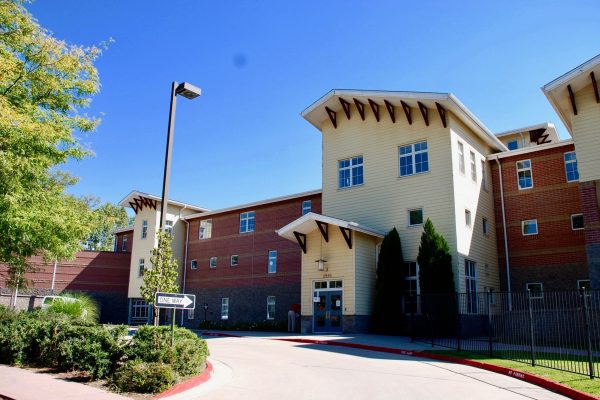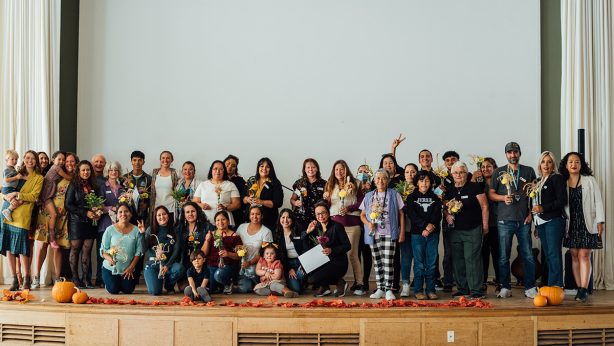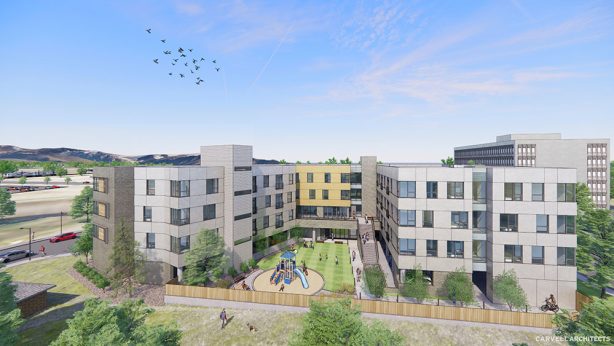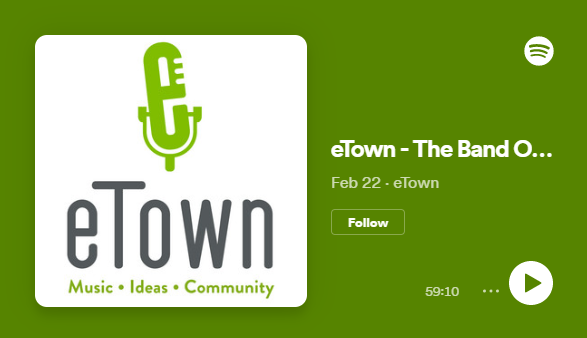Tennyson Center for Children Provides Critical Services and Education for Children in Denver
It was a snowy spring morning as Urban Land Conservancy (ULC) staff members toured the Tennyson Center for Children’s campus in North Denver. Tennyson Center is a school and treatment facility, “dedicated to helping children who have experienced severe abuse, neglect and or trauma stabilize, heal and reintegrate back into Colorado Communities.”
Each year, Tennyson Center provides both day and residential treatment services to hundreds of children ages 5 – 18 who have experienced abuse and neglect or have mental health and development issues. As the wet snow clung to the campus, a Tennyson staff member brought ULC staff into one of the residential cottages for students who live at the school year round. Each child is given a bed, dresser and welcome box upon their arrival at Tennyson. The box contains a nightlight, blanket, stuffed animal and journal to help incoming children feel more at ease in their new environment.

The statistics of abuse in the U.S. child welfare system clearly demonstrate the need for institutions like the Tennyson Center. According to a 2014 report prepared by the U.S. Department of Health and Human Services to Congress, approximately 702,000 children were confirmed victims of maltreatment, or 9.4 victims per every 1,000 children. Trauma experienced as a child often leads to severe behavioral repercussions as the child ages into adulthood.
Based on research conducted by the Center for Disease Control and Prevention (CDC), there is a strong correlation between childhood abuse and neglect, as well as household dysfunction, and adverse reactions in adults such as alcoholism, depression, suicide and obesity. The CDC published a report in 2012 that estimates the total lifetime financial cost to society from childhood trauma and neglect totals nearly $124 billion. On an individual basis, it is estimated that every instance of childhood abuse, costs over $400,000 in public resources over the course of the victim’s lifetime.
The Tennyson Center for Children serves as a refuge for child victims of abuse and neglect. Operating in Denver for 112 years, the TCC helps children who have experienced trauma and adds stability into their lives while simultaneously searching for a permanent, safe environment for their transition after Tennyson.

In the spring of 2005, the Tennyson Center nearly lost their current campus due to the bankruptcy of their parent company. When a notice of the impending auction for the property was posted, ULC’s founders Ron Williams and Sam Gary recognized the opportunity to preserve a critical social and community asset through a sound real estate investment. After a tense bidding process, ULC became the sole owner of the property, thereby ensuring the future of Tennyson Center’s campus and mission. In 2011, the Tennyson Center successfully purchased the property back from ULC, and we have remained constant supporters and partners in their amazing mission.
Kathryn Arbour is the Chief Operating Officer (COO) of the Tennyson Center for Children. In her role, Arbour ensures full support of the Tennyson’s staff members, ensuring the Center’s children receive the best care and education possible. During ULC’s conversation with Arbour, she didn’t focus on the adverse statistics, but instead discussed the positive direction in which her organization is headed. While the Tennyson Center has experienced their fair share of ups and downs over the past century, it is the Center’s resiliency that stands out.
“Our resiliency, the miracle of it, has been about keeping kids at the center,” explained Arbour. “As their needs have changed, so too have we.”
The change Arbour alluded to is a renaissance in the framework of child trauma treatment and care. This “renaissance” focuses on a proactive strategy rather than a reactive one. These efforts are a part of the Tennyson Center’s 5 year strategic plan called Every Kid Forever, a new model of collaboration that aims to leave no child abandoned or forced to wait for care. While Tennyson Center has excelled in “holding space” for children in crisis at the Center, this renaissance is the beginning of an exciting, upstream approach, which looks to prevent children from being caught in a perpetual cycle of foster care.
ULC would like to thank the Tennyson Center for opening their doors to us for a tour of their campus. We wish them continued success with both providing expert treatment for children in crisis, as well as reforming the child welfare system to better serve the victims of neglect and abuse in the State.



